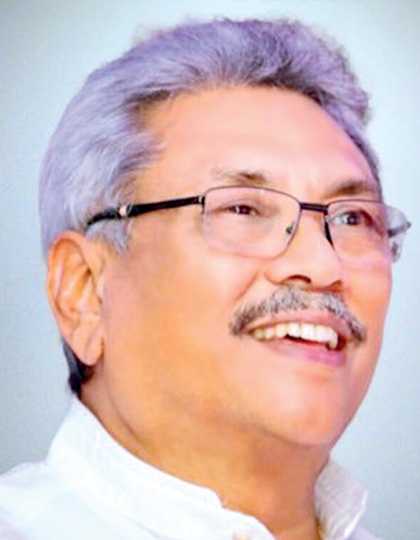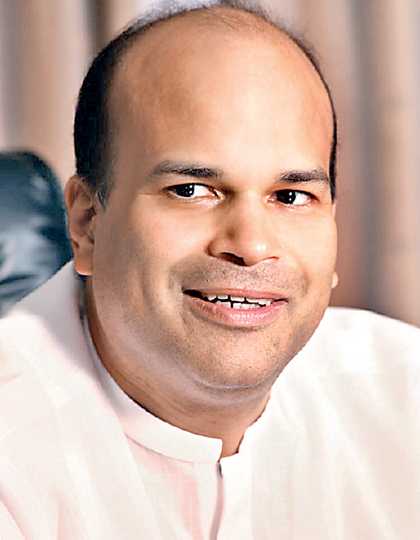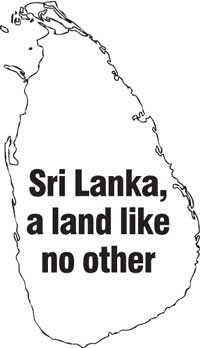Tuesday Feb 17, 2026
Tuesday Feb 17, 2026
Saturday, 5 September 2020 00:30 - - {{hitsCtrl.values.hits}}

President Gotabaya Rajapaksa

Milinda Morogada
The proposed 20th Amendment is set to restore all the Executive powers of the President which were scaled down by the 19th Amendment to the Constitution.
For example replacing the Constitutional Council with a weakened Parliamentary Council, allowing dual citizens to sit in Parliament, the President’s powers to dissolve Parliament after one year of its election, which was increased to four and half years under the 19th Amendment (19A), and lifting restrictions on the number of Cabinet and junior ministers.
All these powers were enjoyed by the Executive under the original provision of the 1978 Constitution, and were removed by 19A in a bid to reduce the powers of the President and hand over more powers to the Legislature to ensure better accountability. Therefore as a country are we progressing or going back?
Then the appointment of the Chief Justice and the Judges of the Supreme Court, the President and Judges of the Court of Appeal, Members of the Judicial Service Commission other than the Chairman, the Attorney-General, the Auditor General, the Parliamentary Commissioner for Administration (Ombudsman), and the Secretary-General of Parliament were previously done by the President upon a recommendation made to the Council. This will now be no longer mandatory.
The provisions introduced by 19A, which made it mandatory for the President to seek the advice of the Prime Minister for appointing ministers and junior ministers, as well as their removal, will also be done away with. The President will be able to exercise these powers on his own. He may seek consultation with the Prime Minister only where he considers such consultation to be necessary. Article 35 of the Constitution, which provided immunity to the President from suits, which was repealed under 19A and replaced with a new Article giving limited immunity to the Executive, will also be reintroduced under 20A.

The Attorney General has said the changes do not require a referendum. But what lawyers argue is that these sweeping changes may require the nod of the public via referendum because the President was elected based on 19 A. However, given the conflict the executive and the legislature had after the 19 A was passed, there is surely a need for some amendments to ensure the government can act fast and be agile in order to face the economic, social and international challenges we currently have. Sri Lanka can no longer afford to have a crippled government like in 2018-19. However, given the history we have had in the past we need to ensure we do not in any way pave the way to usher in dictatorships for five years and then watch in despair for five years.
Presidential appointments
Pressure is being mounted against certain appointments recently made by the President and the Government. President Gotabaya Rajapaksa has said he will not change any of the recent appointments, which were made after deep thought, despite pressure from various parties. The President has said all his appointments were made with the utmost consideration of our country’s sovereignty, national security and implementation of the ‘Saubhagyaye Dekma’ policy statement.
The President also has said such appointments have been made after careful scrutiny of loyalty to the nation, qualifications and background of these individuals so that policies of the Government can move forward in a successful manner.
The President is right, he must be given the space to operate and deliver. For example the proposal to appoint Milinda Moragoda, former Cabinet Minister and founder of the Pathfinder Foundation, as High Commissioner to India is being opposed by the Society for Peace, Unity and Human Rights.
New Delhi is one of the most coveted diplomatic postings with Sri Lanka’s first High Commissioner being Sir D.B. Jayatillake followed by several illustrious Lankans. Morogoda certainly has the credentials for this top job and is a moderate. He has served as the Minister of Justice and Law Reform, Minister of Tourism; Minister for Economic Reform, Science and Technology and Deputy Minister for Plan Implementation and Development. He has graduated with a MBA from the IMD in Lausanne Switzerland and is a Fellow of the Centre for International Affairs at Harvard University. Therefore we Sri Lankans without barking up the wrong tree must focus on the more critical issues like the 20 A and the restoration of the post COVID economy.